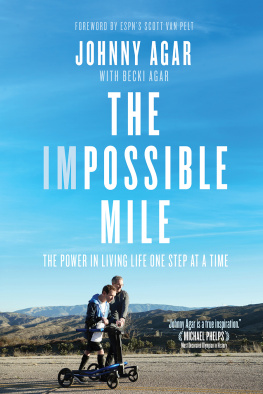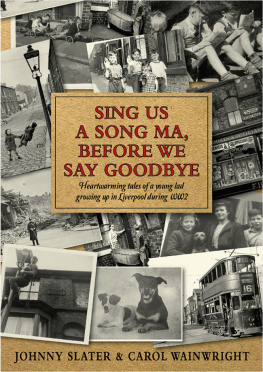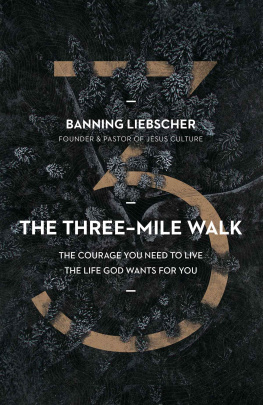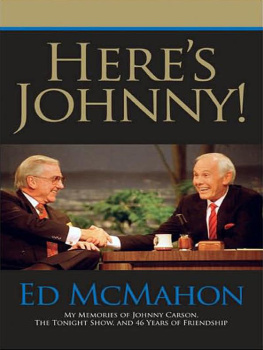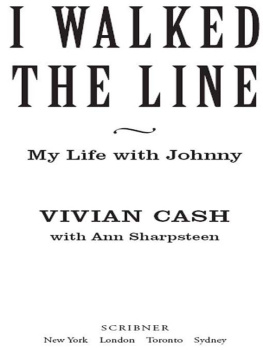PART I
The Road to
Learning
CHAPTER 1
[ The Idea ]
O f course I knew I was different.
I took stock of my eighteen-year-old body. Most of the time my legs stuck straight out, like I didnt have functional knees, and every now and then theyd absolutely shake, as if they were taut rubber bands someone had just snapped. My feet would turn a dark purply color when I sat for long periods. And when I was coldwhich was pretty oftentheyd turn even darker.
My right arm was perpetually bent at a forty-five-degree angle. I couldnt turn my hands over to see my palms. Imagine never being able to see your own palms! And three of my fingers liked to bend upward at the knuckle, instead of curling down.
Whenever I was tired, my left eye would casually float away like a balloon. The only way to call it back was to cover my right eye, which forced my left eye to focus back where it needed to be.
My brain would tell my body to do one thing, but my body would go rogue. Sit up, my brain would say, to which my body would respond by falling over sideways. Because of this constant war, my response time to almost anything was delayed by a few seconds. An action, a question, a task... whatever it was, I was slower than everyone I knew.
But inside of me? I had the exact same desires and aspirations as the next guy. If anyone looked past my body, theyd see that I wanted the same things they did. I wanted friends who made me laugh and friends I could make laugh. To hold a girls hand. To love and be loved. A promising future and to live without regrets.
So maybe I was different, but I was also a typical kid. I just happened to have cerebral palsy.
THE INVITATION
When I was growing up, if youd asked me what I aspired to be, my answer wouldve been automatic. Athlete.
Maybe it was because it seemed so far out of reach, but I wanted it even more, like a child looking at a cookie jar thats too high on the shelf.
My dad, Jeff, knew this. He had been an athlete all his life and pitched for the Detroit Tigers in the minor leagues from 1985 to 1988. He knew how much I loved hearing stories about his glory days playing baseball, basketball, and football. He knew how much I loved watching games on TV, listening to them on the radio, and traipsing out to the softball fields to watch my sisters play. He knew that a game meant more to me than just a score and that athletes stood for something more than just a high salary.
Thats whywhen he saw an opportunity to help meinstead of giving me one cookie, he handed me the whole jar.
Johnny, he had said when I was sixteen years old, Id like some company when I go running. You wanna join me?
And just like that, he invited me into his world.
My dad was not a runner. Hed played professional baseball because he could throw hard and was determined, not because he could run far or fast. In fact, hed always hated running. But he loved me, and he knew I needed to be out there with him. With other athletes.
So, he started pushing me in small races. Using an old jogging stroller that he reinforced with duct tape to hold my weight, Dad took me out almost every weekend to run in 5Ks around my hometown of Rockford, Michigan. The Buck Creek Run, the Kilt Klassic, the Irish Jig, the Lowell Pink Arrow... the names didnt matter, as long as we were out there together. Every race was an opportunity for me to experience life as an active participant. Dad was teaching me how to live like an athlete.
Remember, Johnny, we cant take off too fast, he said on one starting line. We have to pace ourselves. Pace ourselves. Got it.
Then later, when I heard his footsteps falling heavier, I called back to him, How ya feeling, Dad?
Tired, Buddy. But were gonna make it, he answered, breathing hard between phrases. To that mailbox. At the corner. See it up there? I see it and understand. Keep pushing.
While running wasnt foreign to Dad, running while pushing me was. He was forced to learn a whole new set of body mechanics. Unlike almost every other runner, he could no longer swing his arms to help maintain a rhythm and propel himself forward. Instead his hands gripped the jogger handle as he guided me down a yet-to-be discovered road.
When we ran, I felt the bumps of the pavement beneath me. I watched other runners pass us, heard their encouraging words. I learned from the pressure of the jogger on my body to tell how steep of an incline we were going up or down. I loved the feeling of the wind on my face, taking my breath away.
And it was all because of Dad. Running wasnt easy for him under ordinary circumstances. Now he was pushing an extra one hundred pounds without the benefit of his arms, and for what? Why was he putting himself through that?
I knew it was because he wanted me to see what was on the other side. To give his son a chance at understanding something intangiblea feeling, reallyand I loved him all the more for it.
Dad was treating me like his teammate, and I soaked up every moment like a sponge absorbs water. At eighteen years old, I needed athletics almost as much as I needed to breathe. Running with Dad made me feel alive. It gave me a purposesomething to look forward to and strive for. I had always read about athletes, but actually training and running with one gave me a whole new perspective. It was magical. Gauging the sound of Dads breathing behind me... deciding whether he was pacing himself properly... mingling with other runners... I was in their world. I had a backstage pass to the life of an athlete.
And I knew Dad wasnt running for the enjoyment of it.
He was running for me.
COMING ALIVE
Mom and Dad had always taught me that my future did not have to depend on my current situationthat I could decide what course my life would take as long as I had faith in God, worked hard, and never gave up. If you want to look at yourself as having a disability, Dad liked to say, then thats how people will see you, and thats how youll live your life. Disabled. But if you really want to make a mark on this world, you need to see yourself as a championand thats what youll be.
Occasionally, we ran into some of Dads old baseball teammates, and they told me stories about how Dad was always practicing or trying to improve his game. Dan Peaches Petry, who pitched for the Detroit Tigers 1984 World Series team, once told me about an injury that put him on the disabled list. He rehabbed in Lakeland, Florida, at the High-A-ball minor league affiliate where Dad was playing. Your dad was one of the hardest working players on that whole team, he told me, partly because he was always asking questions to help him develop into a better player.
I loved stories like that. They confirmed what I already knew about my father. I witnessed him live like that all the time, but it was always good to hear his old friends color in the picture.
Dad taught me to persevere. He showed me how to never give up on your dreams no matter how foolish they seem, even if the odds arent in your favor. At the same time, he taught me to be grateful. He never took playing baseball or being with the Detroit Tigers for granted. He knew he was blessed to be there and worked hard to prove it. To him, being able to do what he loved every day was a gift, and he appreciated every moment of it.
Johnny, before I made the next level in every sport, I was always told I was just not good enough to make it further, he once told me. But I used that as motivation to prove them wrong. It makes you appreciate it more when you make itand you can do the same thing. Just because you cant move your body the way you want doesnt mean you cant push yourself to do better.
Next page
